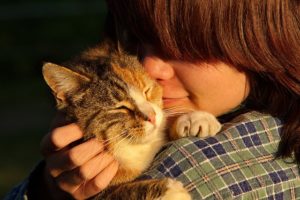
Older cats have slightly different needs from younger felines. Here’s how to help your cat stay its healthiest and happiest.
Senior cats are highly lovable animals. Some people have known their older cat since it was a kitten, while others adopted one of their own volition. Taking care of a senior cat is slightly different from caring for a young feline; one should be aware that, according to today’s best estimate, a 2-year-old cat is about 25 in human years, and every year after that counts for about four human years. The average indoor cat lives up to around 16-18 years, or in some cases, 20! To bestow the best care on your elderly cat in its golden years, take a look at the following tips.
Regular Checkups
The older a pet becomes, the more regularly one should take it to the vet for a checkup. Cats are notorious for hiding any pain or illness well, so exposure to the vet’s expert eye is a great way to catch any issues early.
Check for Behavioral Changes
An owner should also be alert to notice any behavioral changes whatsoever, as it could be a sign of something amiss. For example, if the cat is not moving or jumping as fast as it once did, or if it is hiding more often, one should contact the vet. One should take notice of changes, even if they are minor.
Notice Any Weight Changes
Weight gain and weight loss are also potentially problematic, as a healthy cat’s weight should be relatively stable. Extra weight could put the elderly cat at risk of health problems and a shorter lifespan, while unexpected weight loss is a red flag. In some cases, it could mean diabetes, a thyroid problem, or intestinal disease.
Check the Litter Box
The litter box can tell you numerous things about your cat’s health. If your cat’s output differs in any way, such as harder or softer stools, constipation, or more urine, it could signal some age-related illnesses that your vet should address. Be sure that the litter box is easy for your elderly cat to access, in a quiet location, and has litter comfortable to the paws.
Monitor Eating Habits
Cats’ dietary needs may shift as they grow older, which you should determine with your vet’s advice. In general, fresh or gently cooked food with plenty of nutrients is always a plus. Be sure to monitor how much your cat eats, so you’ll notice if it starts eating less.
Make Adjustments
You might need to make some household adjustments to suit your cat’s needs, such as extra bedding and a ramp or stepping stool to reach favorite sleeping spots easier. Older cats tend to crave a little more attention than younger cats might; continue to groom, pet, and play with your cat, enjoying your bond.
Trust the Care of Your Pet to the Professionals at Everhart Veterinary Medicine!
At Everhart Veterinary Medicine, our veterinary professionals strive to provide your pet with the very best of veterinary care. We believe that the best care for your pet should be provided by experienced, compassionate, and knowledgeable veterinary professionals. With two Maryland locations in both Baltimore and Pasadena, we are always ready to welcome your pet as a new patient! Give us a call today at 410-355-3131 or 410-793-7670! For more information, as well as updates on veterinary news and topics, visit us on Facebook, Twitter, or LinkedIn!
This entry was posted on Tuesday, February 2nd, 2021 at 11:15 am. Both comments and pings are currently closed. Split your bill into easy monthly payments
Split your bill into easy monthly payments 
 Fast and simple checkout
Fast and simple checkout